The research ‘Vaccine Hesitancy’ explores the health beliefs of vaccine critical parents. The inquiry reveals several underlying beliefs that influence parents’ decision-making in either selecting, delaying or refusing vaccines for their children. A series of diagrammatic prints illustrates the distances between the parents and the voice of science. The resulting film, Conversations with Vaccine-Critical Parents, has been screened at several epidemiology training events.
Researcher: Kaisu Koski
Funding: Academy of Finland, Tampere University
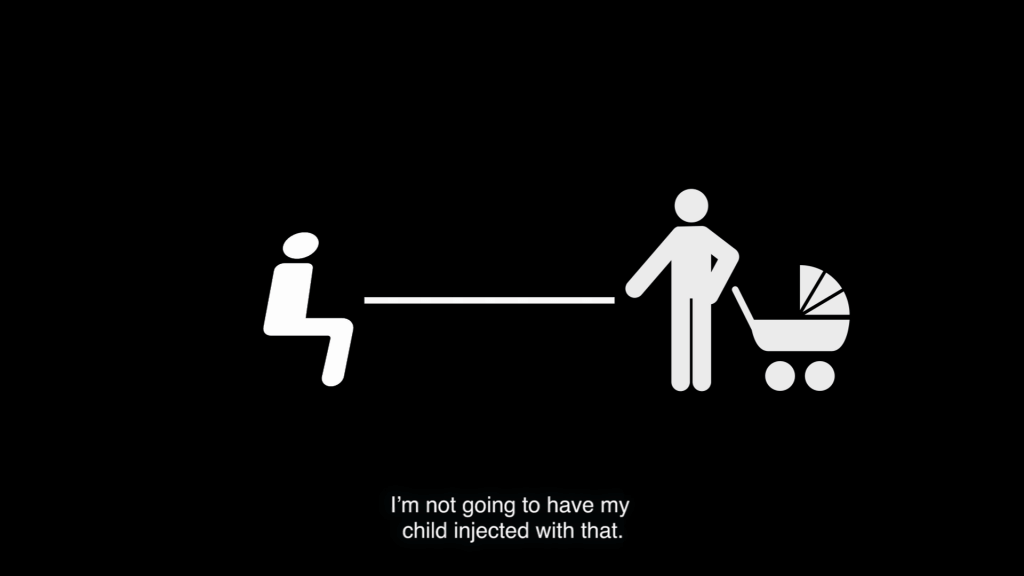
Kaisu Koski conducted nine ethnographic audio-recorded interviews with vaccine-hesitant parents at their homes in the Netherlands and Finland. Parents were invited to donate anonymous home video footage of their children for inclusion in a film. Kaisu subsequently analysed the interviews and visualized the parents’ most dominant health beliefs in diagrammatic prints. By utilizing these prints, the parents’ health beliefs were discussed with vaccine researcher Johan Holst from Norwegian Institute of Public Health.
The discussions were recorded and integrated into the film Conversations with Vaccine-Critical Parents (2017). The research reveals that decisions relate to parents’ understanding of the immune system and the importance of illness in a child’s development, as well as their definitions of ‘natural’. The intention was to stimulate polyphony instead of promoting a single viewpoint, and to illustrate the distances between the parents and the voice of science.
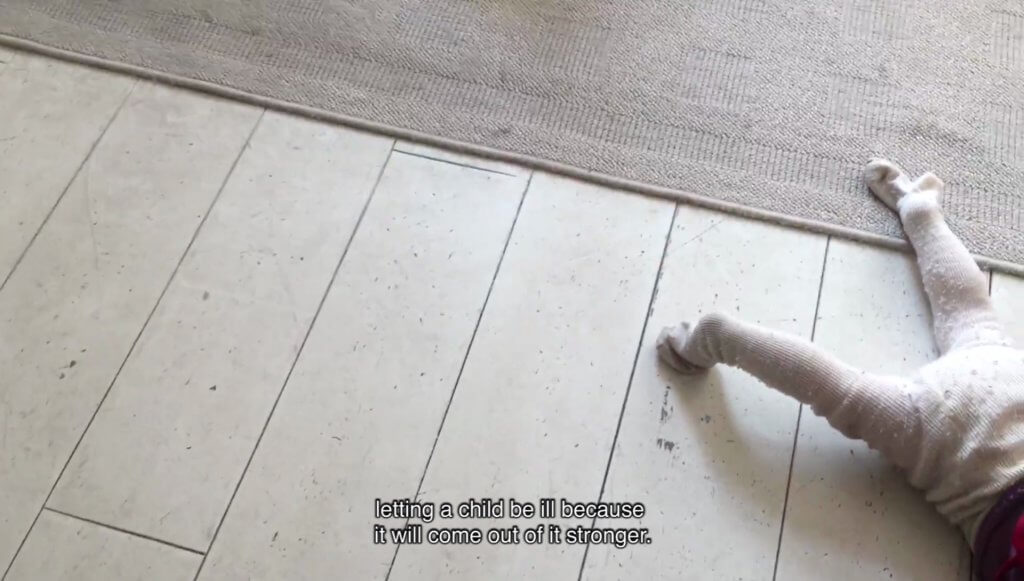
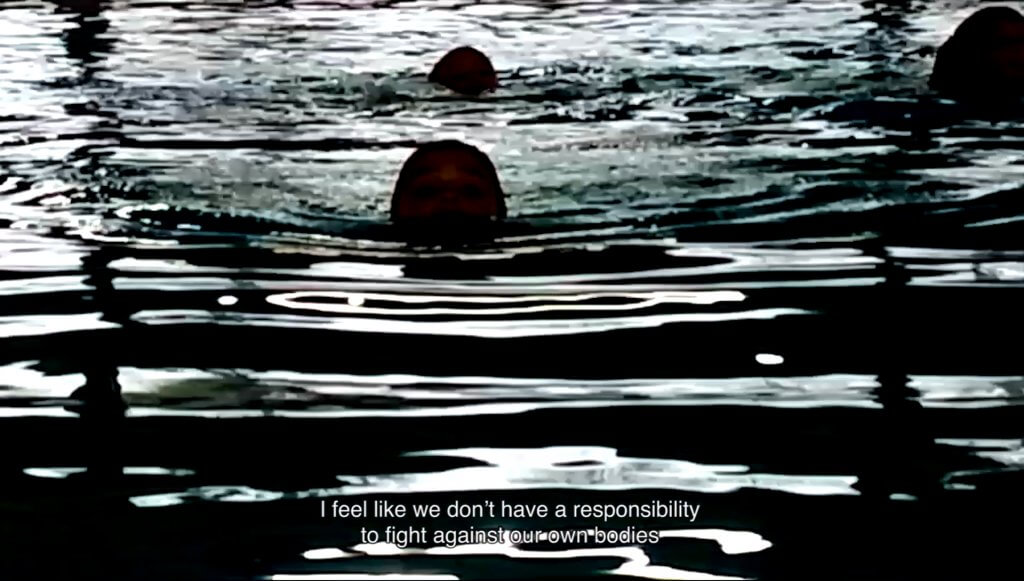
The output was launched by pilot-testing the film in medical education at the Tampere University in 2016. The film was also screened at several epidemiology training events including the European Programme for Intervention Epidemiology Training by the Swedish Public Health Agency and NHS Scotland. The group exhibition <Immune Nations> was exhibited at the United Nations in Geneva during the 2017 World Health Assembly.
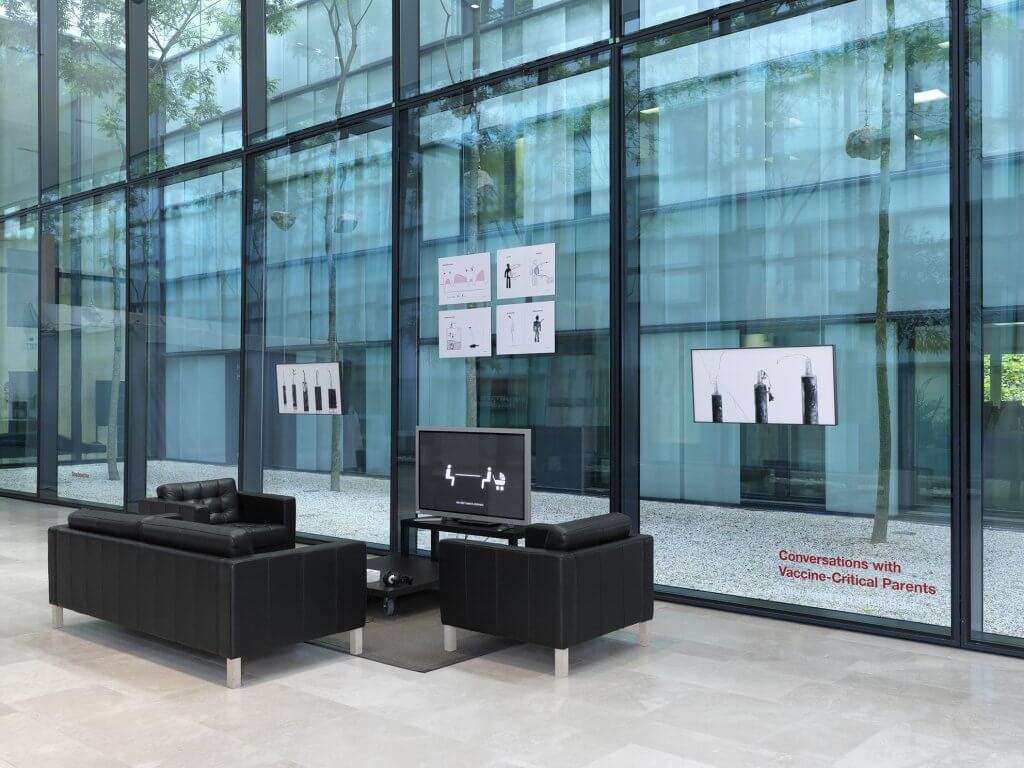
Project Date: 2015-2021
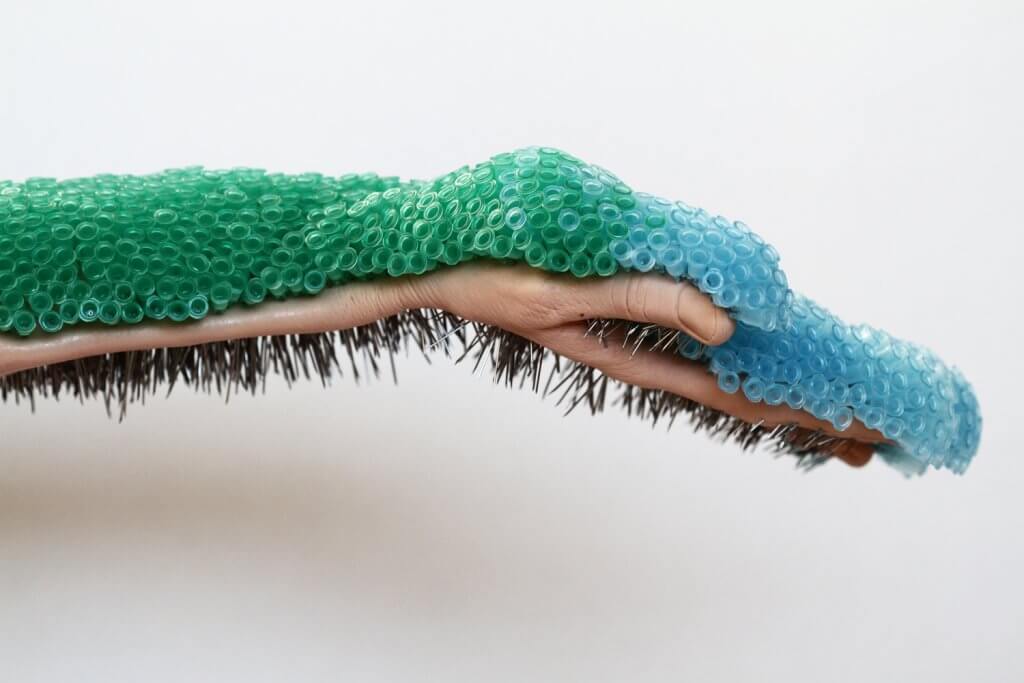
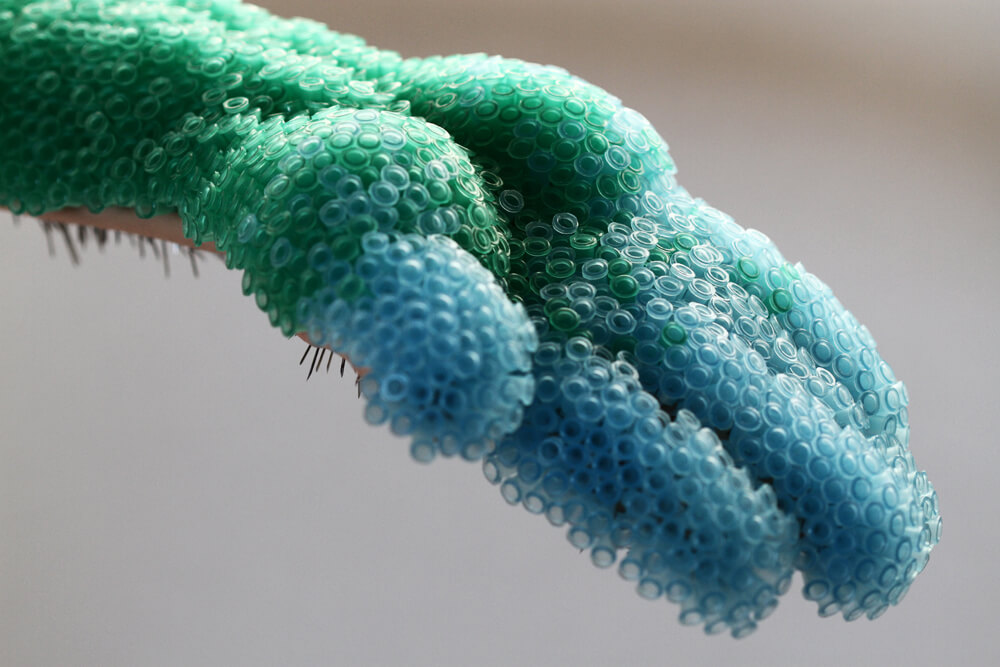
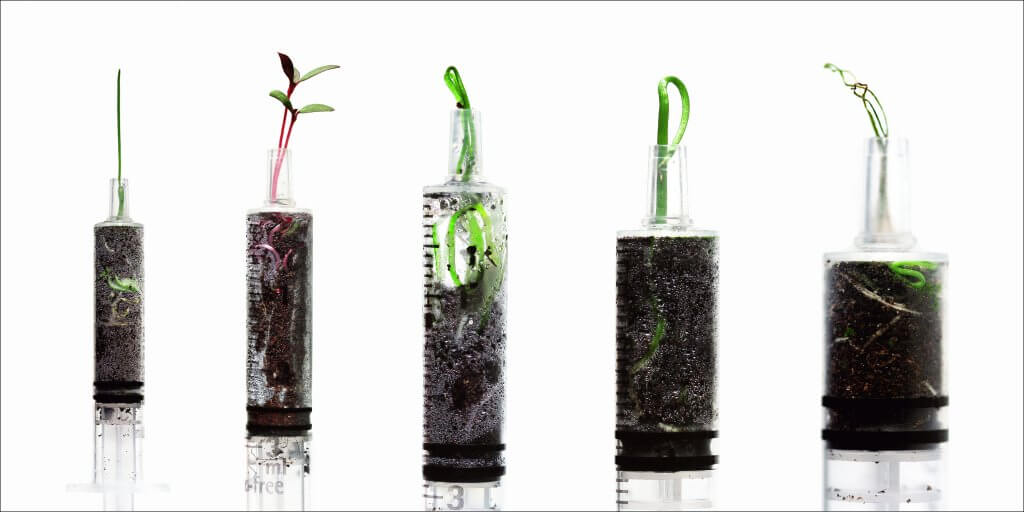
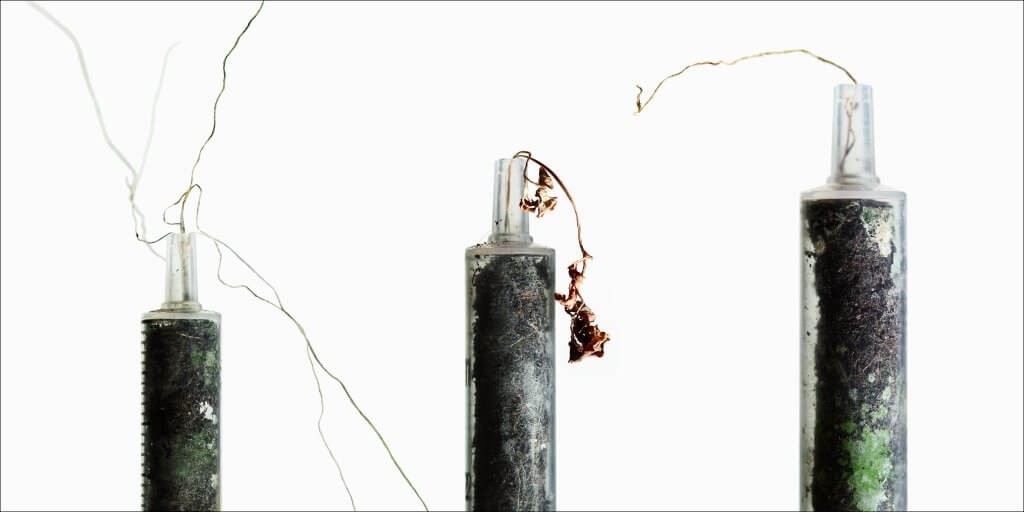
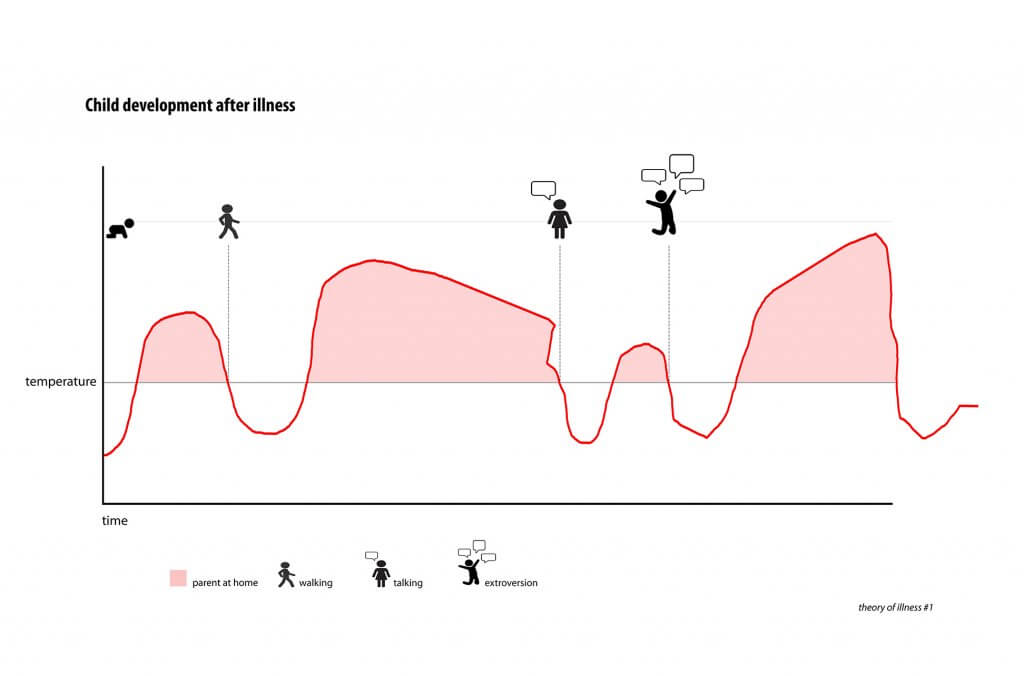
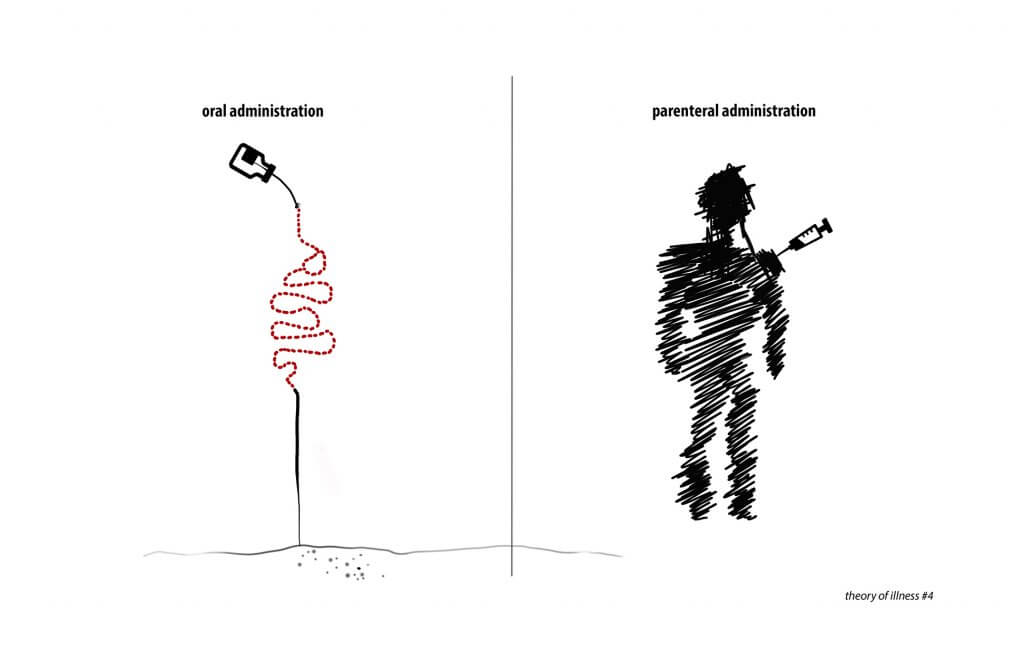
Outputs
Koski K, Holst J. (2020) Conversations on Art-Science Collaboration and Vaccine-Hesitancy. Imaginations: Journal of Cross-Cultural Image Studies, 11(2):71-85.
Koski K. (2019) “On whose side are you?”: Artist-researcher positionality in a global public health challenge. Nordic Journal for Artistic Research, 1(1).
Koski K, Lehto JT, Hakkarainen K. (2019) Physicians self-disclosure and vaccine-critical parents’ trust: Preparing medical students for the parents’ difficult questions. Health Professions Education.
Koski, K. & Lehto, J.T. & Hakkarainen, K. (2018) Simulated encounters with vaccine-hesitant parents: Arts-based video scenario and a writing exercise. Journal of Medical Education and Curricular Development, 5:1-9.
Koski, K. & Holst, J. (2018) Interdisciplinary Dialogue on Vaccine Hesitancy: Developing Trust and Shifting Stereotypes. Journal of Clinical Research & Bioethics, 9(1).
Koski, K. & Holst, J. (2017) Exploring Vaccine Hesitancy Through an Artist-Scientist Collaboration: Visualizing Vaccine-Critical Parents’ Health Beliefs. Journal of Bioethical Inquiry, 14(3):411-426.
Koski, K. (2017). Conversations with vaccine-critical parents. Film, 16’40”. Official Selection i.a. in the Raw Science Film Festival, Los Angeles. https://vimeo.com/217632310
Distributed by the Centre for Finnish Media Art AV-arkki (www.av-arkki.fi)
Koski, K. (2017). Theory of Illness #1-4. Fine Art print series representing vaccine-hesitant parents’ health beliefs. Kunstmuseum Ahrenshoop, Germany. Juried exhibition Luftlinie.
Koski, K. (2017) Syringe Sequence #1-2. Digital C-print series of medicinal plants cultivated in syringes. Public Health Agency of Canada, Ottawa.
Koski, K. (2015) Injection simulator. Installation with a simulated skin and injection needles. Art Center Mältinranta, Tampere Finland.
Funding
This study is part of Kaisu’s Academy Research Fellow project Video Scenarios in Medical Education: Polyphony and Non-linearity in Audiovisual Doctor–Patient Narratives, funded by the Academy of Finland 2015–2020, and co-funded by Tampere University. This work was completed as part of the International Collaboration for Capitalizing on Cost-Effective and Life-Saving Commodities (i4C) that is funded through the Research Council of Norway’s Global Health & Vaccination Program (GLOBVAC Project #234608).
Credits
This project is a collaboration with Dr. Johan Holst, Senior Scientist at Coalition for Epidemic Preparedness Innovations CEPI, Oslo, Norway.
 to top
to top
